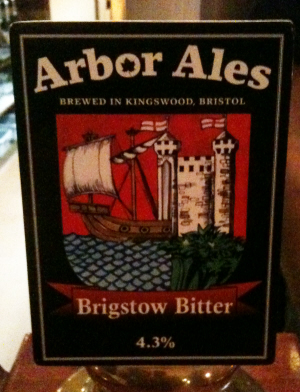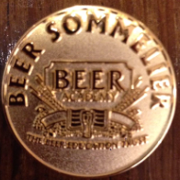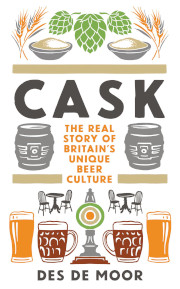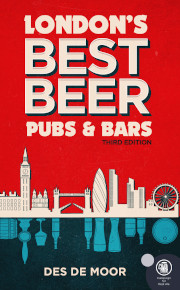
Arbor Ales Brigstow Bitter. Pic: Wonker – Creative Commons
ABV: 4.3%
Origin: Bristol, England
Website: arborales.co.uk
Bristol is one of Britain’s more exciting beer cities at the moment, with some outstanding pubs, a small but growing cluster of decent small breweries and a flourishing homebrew scene. Besides Bath Ales, actually now much closer to Bristol than Bath and a well established and successful micro with a small estate of well regarded pubs, the two names that most excite contemporary beer drinkers are Arbor Ales and the Bristol Beer Company.
I’ve enjoyed some excellent and innovative beers from both brewers but it was Arbor that particularly stood out for me when I found myself in the city in September 2012 as a judge in the UK National Homebrew Competition. The night before I spent some time in Arbor’s pleasant brewery tap, the Three Tuns, where unsurprisingly I bumped into a few of my fellow judges.
Arbor was founded in 2007 by brewer Jon Corner with Megan Oliver in a small space behind the Old Tavern in Stapleton, northeast Bristol. A year later that pub closed and the brewery upgraded to a 10hl kit on an industrial estate in Kingswood, moving again early in 2012 to inner city Upper Easton.
Jon is known for his contemporary hoppy pale ales and ‘Freestyle Fridays’ rarities but the beer that most impressed me was the brewery’s take on a traditional English brown bitter, Brigstow. It’s made with exclusively English hops – Challenger for bitterness and substantial amounts of Fuggles and East Kent Goldings – with crystal malt and caramalt giving a firm backbone.
My pint from the cask at the Three Tuns was a warm amber colour with an orangey-beige head and a smooth, very chaffy and classic aroma with leafy hops. The palate, too, had that chaffy cereal and hopsack character, with clean malt, distinctive autumn fruit and orange notes, honey and bittering citrus.
A spicy swallow set up a hop-dominated finish with a solid grainy backdrop, with pithy grapefruit bitterness and earthy vegetal notes balanced by honey and biscuit.
Much as I’m delighted at the spirit of adventure sweeping many of the newer British microbreweries, it’s also reassuring to know that the future of the more traditional easy drinking styles of ale is in good hands.





Leave a Reply